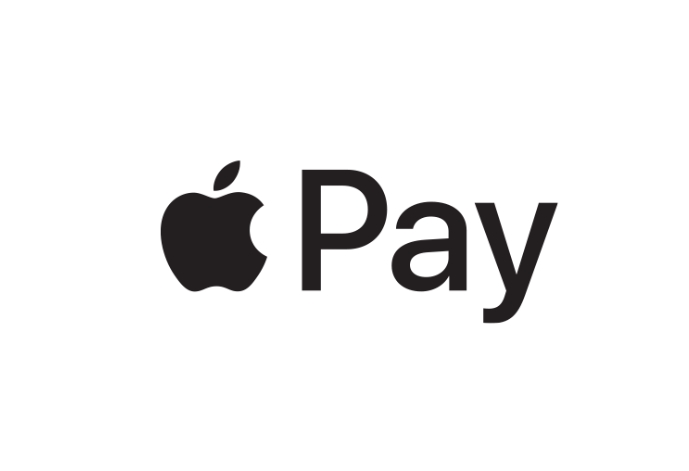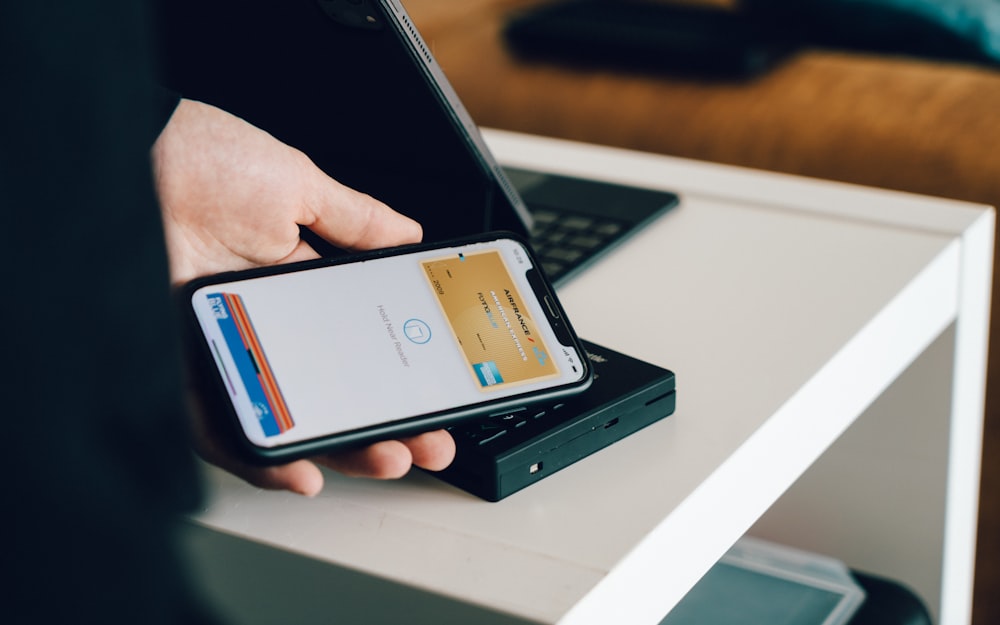Revolutionizing Banking: The Impact and Adoption of Apple Pay
May 08, 2024 By Triston Martin
What is Apple Pay
 Apple Pay, introduced by tech giant Apple Inc. in 2014, has transformed the landscape of digital payments, offering users a seamless, secure, and convenient way to make purchases both in-store and online. At its core, Apple Pay leverages near field communication (NFC) technology, enabling contactless payments using compatible Apple devices such as iPhones, iPads, Apple Watches, and Macs. By simply adding their preferred payment cards to the Apple Wallet app, users can tap, swipe, or click to complete transactions effortlessly.
Apple Pay, introduced by tech giant Apple Inc. in 2014, has transformed the landscape of digital payments, offering users a seamless, secure, and convenient way to make purchases both in-store and online. At its core, Apple Pay leverages near field communication (NFC) technology, enabling contactless payments using compatible Apple devices such as iPhones, iPads, Apple Watches, and Macs. By simply adding their preferred payment cards to the Apple Wallet app, users can tap, swipe, or click to complete transactions effortlessly.
The advent of Apple Pay marked a significant milestone in the evolution of mobile payments, providing consumers with an innovative alternative to traditional payment methods. With its user-friendly interface and robust security features, Apple Pay has rapidly gained popularity among consumers seeking a more streamlined and efficient payment experience. Gone are the days of carrying bulky wallets or fumbling for cash or cards at the checkout counterApple Pay offers a modern solution that aligns with the fast-paced, digital lifestyles of today's consumers.Banks that Support Apple Pay
Several prominent banks have embraced Apple Pay, aligning with the growing demand for digital payment solutions in today's technologically driven landscape. Institutions such as Wells Fargo, Chase Bank, and Citibank have joined the ranks of Apple Pay supporters, recognizing the importance of offering their customers seamless and secure payment options.
Additionally, Bank of America, US Bank, and Capital One are among the financial institutions that have integrated Apple Pay into their banking services, enabling their customers to enjoy the convenience and security of contactless payments using their Apple devices. These banks' decision to support Apple Pay underscores their commitment to meeting the evolving needs of consumers in an increasingly digital world, while also enhancing the overall banking experience through innovative technology and user-friendly solutions.
Why Banks Support Apple Pay
 One of the primary reasons banks support Apple Pay is to enhance the overall customer experience and satisfaction. By integrating with Apple's ecosystem of devices and services, banks can offer their customers a seamless and frictionless payment experience that aligns with the fast-paced, digital lifestyles of today's consumers. Apple Pay's intuitive interface and robust security features provide users with a convenient and secure way to make purchases, whether in-store, online, or within apps, without the need to carry physical cards or cash. This enhanced convenience and security contribute to higher levels of customer satisfaction and loyalty, ultimately benefiting banks by fostering stronger relationships with their customers.
One of the primary reasons banks support Apple Pay is to enhance the overall customer experience and satisfaction. By integrating with Apple's ecosystem of devices and services, banks can offer their customers a seamless and frictionless payment experience that aligns with the fast-paced, digital lifestyles of today's consumers. Apple Pay's intuitive interface and robust security features provide users with a convenient and secure way to make purchases, whether in-store, online, or within apps, without the need to carry physical cards or cash. This enhanced convenience and security contribute to higher levels of customer satisfaction and loyalty, ultimately benefiting banks by fostering stronger relationships with their customers.
Moreover, banks recognize the potential for Apple Pay to drive adoption and usage of their payment cards among consumers. By supporting Apple Pay, banks can tap into Apple's extensive user base and ecosystem, which includes millions of iPhone, iPad, Apple Watch, and Mac users worldwide. This expanded reach enables banks to attract new customers, increase card usage, and generate additional revenue streams through transaction fees and interchange fees. Additionally, by offering Apple Pay as a payment option, banks can differentiate themselves from competitors and position themselves as innovative and customer-centric financial institutions in a highly competitive market.
Another factor driving banks to support Apple Pay is the focus on security and fraud prevention. Apple Pay's advanced security features, such as tokenization, biometric authentication, and end-to-end encryption, provide robust protection against unauthorized access and fraudulent transactions. By leveraging these security measures, banks can reduce the risk of fraud-related losses and mitigate reputational damage associated with security breaches. Additionally, supporting Apple Pay allows banks to demonstrate their commitment to protecting their customers' financial information and providing a safe and trustworthy banking experience.
How to Set Up Apple Pay with Your Bank
Setting up Apple Pay with your bank is a straightforward process that offers convenience and security in your day-to-day transactions. Whether you're an iPhone or iPad user, integrating Apple Pay with your bank account allows you to make purchases in stores, apps, and online with just a tap or a glance. The first step in setting up Apple Pay is ensuring that your bank supports this service. Fortunately, many major banks worldwide have embraced Apple Pay, enabling their customers to enjoy the benefits of contactless payments. Once you've confirmed that your bank supports Apple Pay, you can proceed to add your debit or credit card to the Wallet app on your Apple device.
To set up Apple Pay, open the Wallet app on your iPhone or iPad and tap on the "+" icon to add a new card. Follow the prompts to enter your card details manually or use your device's camera to scan the card information. Once you've entered the card details, your bank will verify the information and may require additional authentication steps, such as receiving a verification code via text message or email. After completing the verification process, your card will be added to Apple Pay, and you'll be able to use it for contactless payments.
Once you've set up Apple Pay with your bank, you can start using it to make purchases in stores, apps, and online. When making a payment in-store, simply hold your iPhone or Apple Watch near the contactless reader and authenticate the transaction using Face ID, Touch ID, or your device passcode. For online and in-app purchases, select Apple Pay as your payment method and authorize the transaction using Face ID, Touch ID, or your device passcode.
Conclusion
In conclusion, the widespread adoption of Apple Pay by banks underscores its significance as a transformative force in modern banking. By offering a seamless, secure, and convenient payment solution, Apple Pay enhances the overall customer experience and satisfaction, driving increased adoption and usage of digital payment methods. As more banks continue to support Apple Pay, consumers can expect greater accessibility to contactless payments, further blurring the lines between traditional banking and innovative technology.

Dec 20, 2023
Banking
Traditional Savings Minimum Balance
A traditional savings account's minimum balance is the bare minimum you need to retain in the account to avoid monthly service charges. Traditional savings accounts typically have a $300 to $500 minimum balance requirement, while some institutions do not impose any minimum.

Nov 15, 2023
Know-how
The Actual Highest-Grossing US Films
A Hollywood blockbuster's opening night is guaranteed to be accompanied by enormous lines, sold-out theatres, and extensive media coverage. However, the most commonly used film estimate fails to account for inflation after the final credits have rolled and the cash has been counted. With today's higher entry prices, newer movies have an unfair advantage when comparing box office success.

Feb 24, 2024
Know-how
The Best Bachelor's Degree to Have for a Career in Hedge Funds
For a range of hedge fund positions, a bachelor's degree in finance is desirable, but the major you choose is important. There is a growing need for bachelor's degree holders in many fields such as mathematics and accounting as well as in physics and computer science due to the recent development in algorithmic trading. A graduate degree, like an MBA or MF, might also aid in obtaining employment in a hedge fund.

Dec 17, 2023
Investment
Should You Invest in Long-Term Rentals or Flip Houses?
Becoming a successful real estate investor involves more than just purchasing a home at a discount and fixing it up. What you do with the property you purchase is another important factor in determining your level of success as an investor. Some investors like to buy a house, fix it up, and sell it quickly for a profit, while others prefer to buy and retain the property, renting it out to generate a steady income stream.

Oct 04, 2023
Know-how
Why Unemployment Is Related to Price Increases?
Recessions have often followed periods of rising inflation. But this alliance is more complicated than it seems at first glance, and it has failed several times over the past fifty years. Since they are both closely monitored economic indicators, it is crucial to comprehend the relationship between inflation and employment (and unemployment).

Oct 07, 2023
Know-how
MetLife Life Insurance Review
MetLife insurance is excellent for those who have access to organization coverage.

Feb 11, 2024
Banking
Why Should You Give Your Children a Debit Card?
Using a debit card may simplify the process of spending money. We are mature adults, and we are aware of the consequences of swiping that card, which will result in an instant withdrawal of money from our bank accounts. It is also an important ability for children to acquire, and it is never too early to start teaching children money management principles.

Dec 26, 2023
Investment
Investing In Space Exploration
Space exploration has been one of the areas that many argue is the sole responsibility of governments. Space exploration does not only have a high cost and uncertain economic benefits, which are a scourge for companies; however, many experts and observers are concerned that their participation could affect the integrity of pure science or cause uncontrolled land grabs that are hard to judge in courtrooms on the ground.

May 08, 2024
Banking
Revolutionizing Banking: The Impact and Adoption of Apple Pay
Do you also use Apple Pay to connect with your bank in your daily life? Do you know why the bank chose it?

May 16, 2024
Taxes
Introduction to Exchange-Traded Fund (ETF)
Explore the advantages and disadvantages of Exchange-Traded Funds (ETFs) in this comprehensive guide to informed investing.

Dec 13, 2023
Know-how
Seven Key Traits of an Exceptional Accountant in Modern Business
Many qualities like staying up-to-date, being organized, and being patient make you an exceptional accountant. Read more of these traits in this article.

Feb 05, 2024
Banking
Things you Must Know About Bank of the West Cash World Mastercard
If you are interested in learning more about this credit card and you want to get it, this article is a must read for you.